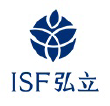PRIMARY SCHOOL CURRICULUM
Assessment
Assessment covers a student’s ability to achieve specific criteria in each learning area and plays a vital role in shaping the ISF Primary School program. Our assessment model focuses on portfolio, class performance, and/or written tests after each unit. To set performance standards and benchmarks, clearly defined scoring criteria or rubrics are established for each subject and grade. Formative and summative assessments are used to evaluate students and for special projects, students engage in self- and peer- reflections.
Teachers are regularly assessing a student’s progress against established standards rather than their ranking order. In addition to teacher-designed tests, classroom observations, projects, reports, homework and portfolios are also considered. Report cards are issued at the end of each term to inform parents of their child’s academic progress, work habits, and character development.
Homework
Homework is valuable in helping students make the most of their school experience. Homework strengthens academic skills, reinforces concepts learned in class, encourages students to develop responsibility and good study habits. Teachers assign homework based on the ability level of students in a given class. The following chart suggests the average amounts of homework students can expect:
| Foundation Year: | Approximately 40 minutes every school night inclusive of reading; no written homework during the first semester |
| Grade 1: | Approximately 60 minutes every school night |
| Grade 2: | Approximately 60 minutes every school night |
| Grade 3: | Approximately 60 minutes every school night |
| Grade 4: | Approximately 60 minutes every school night |
| Grade 5: | Approximately 80 minutes every school night |
Reading is an integral part of a student’s language development; the times indicated above are not inclusive of an additional 15 to 20 minutes of home reading in either language. Students are encouraged to read over the weekends and holidays.
